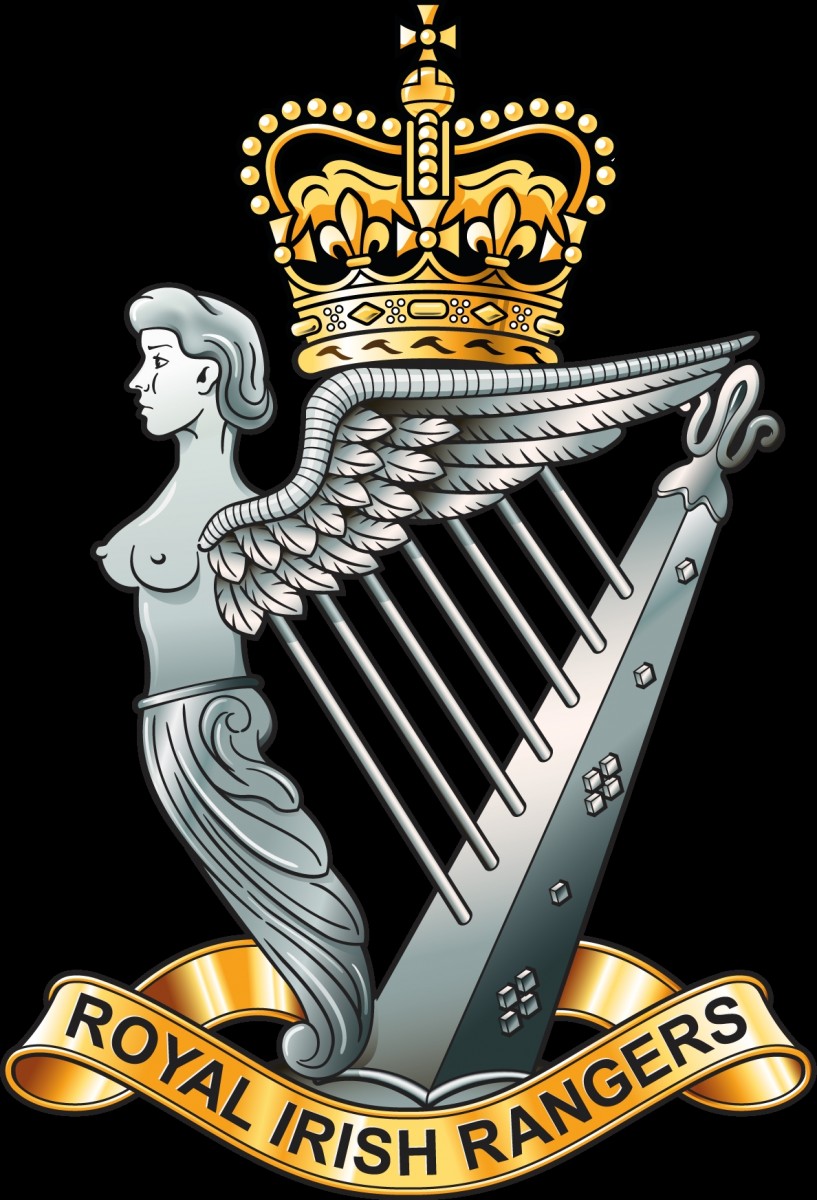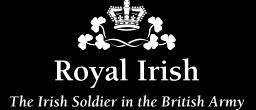Explore Listing
Prior to 1812, the 'Articles of War', known to soldiers as 'the Devil's Article', was the legislation which enabled regimental courts martial to hand down punishments without limitation for offences such as - an action which was 'to the prejudice of good order and military discipline'; 1,900 lashes appears to be the maximum ever recorded.
During the night of 29/30 October 1899, a column consisting of the 1st Battalion The Royal Irish Fusiliers, The Gloucestershire Regiment and No 10 Mountain Battery The Royal Artillery, marched north out of Ladysmith led by the Faugh's Commanding Officer, Lieutenant Colonel F R C Carleton. Lieutenant General Sir George White VC, the Commander Ladysmith Garrison, aimed to protect his lines of communication to Colenso in the south by dispersing the advancing Boer forces to the north.
 Army Order Number 54/1972 directed that 'Killaloe' became the Regimental Quick March of The Royal Irish Rangers. It replaced the previous Regimental Quick March which was a musical arrangement of 'Rory O'Moore', 'St Patrick's Day' and 'Garryowen'.
Army Order Number 54/1972 directed that 'Killaloe' became the Regimental Quick March of The Royal Irish Rangers. It replaced the previous Regimental Quick March which was a musical arrangement of 'Rory O'Moore', 'St Patrick's Day' and 'Garryowen'.
This tribute was written by the late Major General H E N (Bala) Bredin and published in our Regimental Magazine, 'The Blackthorn', in 1978.
 (Right; Napoleon by David, 1813 Wiki CC)
(Right; Napoleon by David, 1813 Wiki CC)
The following letter was received by the Admiral commanding the Royal Navy ships stationed in the Downs:
To the Honourable J. Foley, Port Admiral, Deal, &c. &c. &c.
Dover, One o’Clock, A.M.
February 21, 1814
Sir,
The first case of 'Spanish' Influenza was recorded and thus began the two waves of the 'forgotten' pandemic that possibly infected 500 million humans, killing between 50 and 100 million. The global mass movement of armies during the latter years of the First World War are believed to have contributed to the spread, mutation and lethality of the virus. It was speculated that the weakening of the soldiers' immune systems through poor nourishment, the stresses of combat and the unknown effects of chemical attacks all created a susceptibility to the contagion.
In late 1937 the British Army was awakening to the threat of aggression from another power and, as such, was re-equipping with new or modernised arms and equipment. It was at this time that the Boys* Anti-Tank Rifle was introduced into service. After the preliminary checks, an officer of The Royal Irish Fusiliers was heard to enquire, 'Who will carry the Boys Rifles, Sergeant Major?' A brief puzzled pause was followed by the reply 'Sure the boys will carry their own rifles, sir!'
*
The 1st Battalion The Royal Inniskilling Fusiliers arrived in Port Said on 15 November and moved to Geneifa where they were complete by 17 November 1951. Operations included guarding key facilities, patrolling and sweep (search) operations. Several operations targeted the Egyptian Police including the fortress post at Geneifa. It was there that Major G F Maxwell approached the fort's gate in a carrier and persuaded its occupants to surrender by rapping on the gate with his blackthorn stick and explaining the alternative from inside his carrier with only his steel helmet visible.
The 1st Battalion The Royal Inniskilling Fusiliers embarked in HMT New Australia and departed Egypt on 25 September, bound for England. After disembarking they arrived in Castle Barracks, Dover on 3 October 1952. After the Battalion returned from a long leave in January 1953, it was deployed on flood relief at Southwold and Sea Palling near Norwich, Norfolk, from February to March. The next operational deployment in October 1953 would be to Kenya where a State of Emergency had been declared in October 1952.
The 1st Battalion The Royal Inniskilling Fusiliers had been placed at 28 days notice to move on 17 October 1951 due to the emergency in Egypt and the Suez Canal Zone. The Battalion departed Connaught Barracks and, led by the Drums and Pipes, marched to the railway station in Dover where it entrained for Southampton. With the Regimental band playing on the dockside the Battalion embarked in HMS Triumph* and sailed on 4 November 1951, bound for Port Said via Cyprus.





